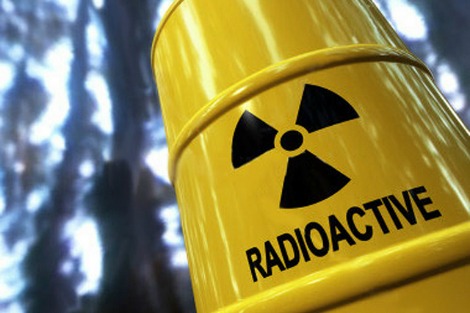Keywords: Heat
There are more than 200 results, only the first 200 are displayed here.
-

INTERNATIONAL
- Bronwyn Lay
- 14 January 2016
3 Comments
As I marched for Remembrance Day in our small village in France, I wondered, 'How long will these villages keep these ceremonies? When will someone decide these wars are too long ago or too far away?' Two days later, Paris was attacked. The news came like war does: sudden and violent. Then came declarations of a state of emergency and the closing of borders. My eldest daughter was over the border in Switzerland without a passport. War starts in increments, in the small ordinary worries of families.
READ MORE 
-

ENVIRONMENT
- Michele Madigan
- 18 November 2015
14 Comments
It's no surprise that three of the federal government's shortlisted sites for the proposed national radioactive waste facility are in South Australia, the 'expendable state'. And it's disturbing to find that the owner of at least one of the sites has been misinformed, believing 'It's basically only a medical waste facility.' In fact the farmer and Indigenous opponents of the sites are right to be concerned. The intermediate level waste housed at such a facility will be hazardous for thousands of years.
READ MORE 
-

INTERNATIONAL
- Chris Middleton
- 16 November 2015
14 Comments
In many of these conflicts religious difference constitutes an important element in the conflict. Some commentators point to religion as the cause of many of humankind's wars. In a sense they are correct, as they would be also if they ascribed war to humankind's quest for liberty, equality, justice, or even love. It is a paradox of the human condition that that which is noblest in the human often gives way to violence and intolerance. How are we supposed to react to such an attack?
READ MORE 
-

INTERNATIONAL
- Bronwyn Lay
- 16 November 2015
16 Comments
As I marched for Remembrance Day in our small village in France, I wondered, 'How long will these villages keep these ceremonies? When will someone decide these wars are too long ago or too far away?' Two days later, Paris was attacked. The news came like war does: sudden and violent. Then came declarations of a state of emergency and the closing of borders. My eldest daughter was over the border in Switzerland without a passport. War starts in increments, in the small ordinary worries of families.
READ MORE 
-

ENVIRONMENT
- David James
- 05 November 2015
2 Comments
In the early 1990s London engineer Allan Jones took the suburb of Woking off the grid by establishing a system of tri-generation, which reduces waste by generating power locally. The Sydney City Council employed Jones in 2009 to bring the same approach to Australia. But regulations from previous eras that greatly favour the incumbent power companies are preventing any meaningful change. Once again we find that the main challenges with tackling global pollution are not technical, but political.
READ MORE 
-

ARTS AND CULTURE
- Femi Morgan and Ajise Vincent
- 27 October 2015
1 Comment
A first child is a road child / He paths the field of joy / Phantasmagoria of moments / First panic, first pain, first cry / That tears the joy in your father's eyes /There is more to life / Than Sponge Bob and Ben / Be wiser than the tortoise / They may go extinct / Except in books and stories / Be careful with the holy communion / Of the boys / That dark sparkling liquid / That bitter-sweet music of the times.
READ MORE 
-

ARTS AND CULTURE
- Sarah Klenbort
- 21 October 2015
6 Comments
A young man introduces himself: Ashley. He has sandy blond hair, a lithe body and an ease and grace with the kids. The lessons are free, but my daughter doesn't wait to for this explanation; she's already picked up a unicycle. 'You need a helmet first,' Ashley explains, and I tap my daughter's arm and sign, 'Helmet'. 'Does she read lips?' he asks. 'If you could just look at her when you're talking,' I say. 'Okay,' he says with the slightest trepidation. 'She's d-d-deaf and I have a stutter.'
READ MORE 
-

ARTS AND CULTURE
- Brian Matthews
- 18 September 2015
9 Comments
When Josef Stalin died on 5 March 1953, a couple of months into my Matriculation year, my Russophile leanings seemed about to be intensified. Research in those days was a matter of consulting encyclopaedias, or, if possible, going to the Public Library, but in Stalin's case the newspapers were full of reports, history, anecdote, judgement and various degrees of relief, so there was suddenly plenty of information.
READ MORE 
-

- Frank Brennan
- 18 September 2015
Pope Francis's concerns are not narrowly dogmatic or pedagogical but universally pastoral. He knows that millions of people, including erstwhile Catholics, are now suspicious of or not helped by notions of tradition, authority, ritual and community when it comes to their own spiritual growth which is now more individual and eclectic. He wants to step beyond the Church's perceived lack of authenticity and its moral focus on individual matters, more often than not, sexual. He thinks the world is in a mess particularly with the state of the planet — climate change, loss of biodiversity and water shortages, but also with the oppression of the poor whose life basics are not assured by the operation of the free market, and with the clutter and violence of lives which are cheated the opportunity for interior peace. He is going to great pains to demystify his office. He wants all people of good will to emulate him and to be both joyful and troubled as they wrestle with the probl
READ MORE
-

ARTS AND CULTURE
- Tim Kroenert
- 17 September 2015
5 Comments
When Sin-Dee rants about the 'fish' with whom her pimp boyfriend has been cheating, she is a transgender woman using a derogatory term for a person who is socially and biologically female. Her story does not merely transgress traditional gender binaries; it assumes the perspective of marginalised characters to reveal through their lived experiences the ways in which gender is both an individual and social construction.
READ MORE 
-

MEDIA
- Jeff Sparrow
- 26 August 2015
15 Comments
The media has greeted the infidelity website leak with unabashed glee. We could instead ask why so many ordinary people are seemingly so discontented with their marriages, and what might be done to alleviate the wretchedness both of those who cheat and those who don't.
READ MORE 
-

AUSTRALIA
- Andrew Hamilton
- 20 August 2015
9 Comments
Recent weeks' events in federal politics stretch the imagination. The search for historical parallels brought me to the start of the Burke and Wills Expedition to the Gulf of Carpentaria, the disappearance of Azaria Chamberlain, and the race that saw Fine Cotton unravel. Each of these events was characteristically Australian. In Les Murray’s memorable phrase, they all had sprawl: the mingling of excess, overweening self-confidence, and the cutting of corners.
READ MORE 